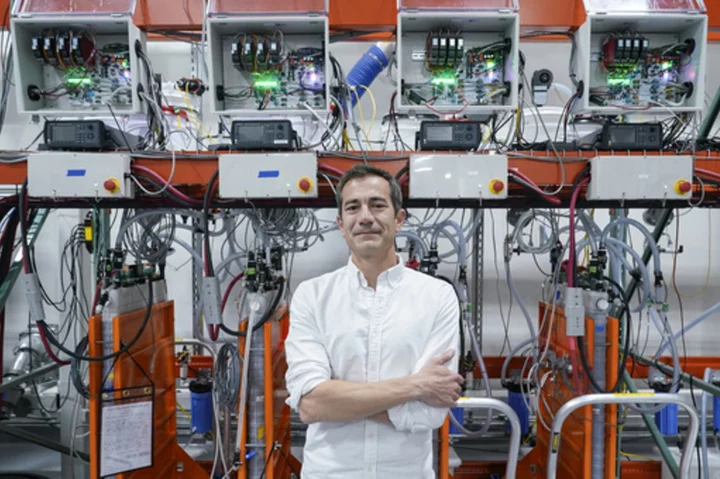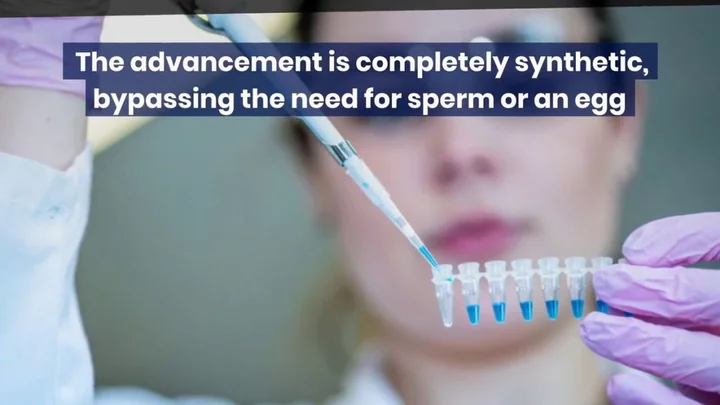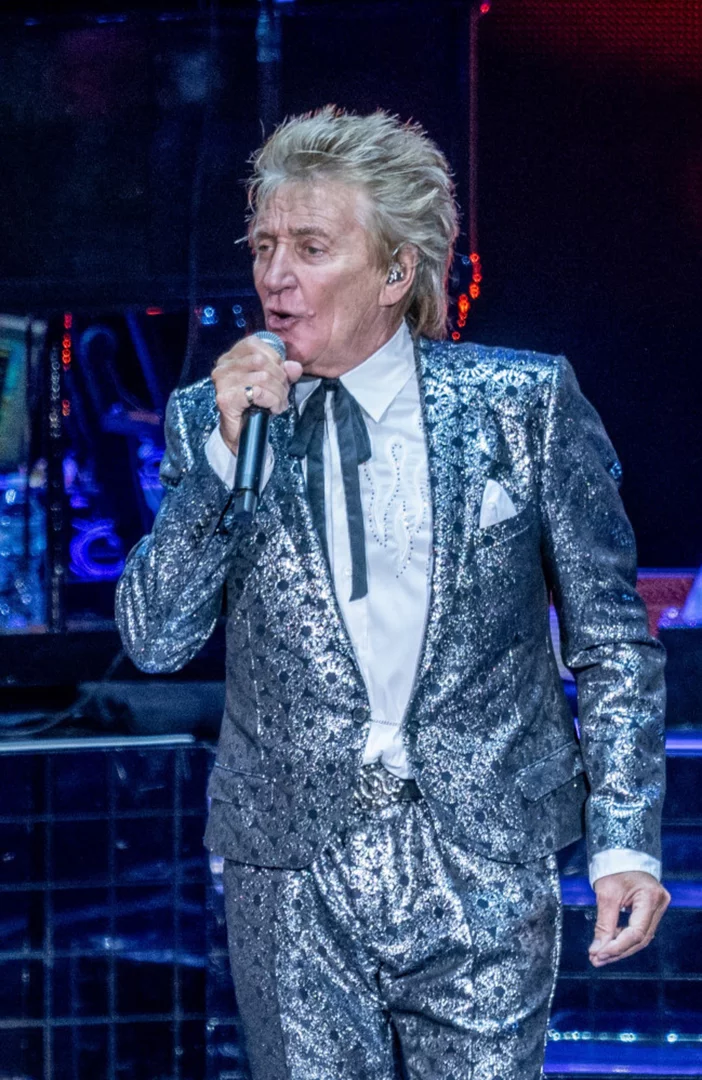
Insider Q&A: Lithium batteries have a 4-hour limit. Mateo Jaramillo hopes to solve that
Lithium ion batteries are in everything from computers to electric vehicles, to installations that bolster the electrical grid
2023-06-19 20:15

The women who run Antarctica's 'penguin post office'
When this year's all-woman team arrived on Antarctica's Goudier Island to run the world's most remote post office, it was shovels they needed rather than stamps.
2023-06-19 19:15

Malta media guide
An overview of the media in Malta, including links to broadcasters and newspapers.
2023-06-19 18:22

Can noisy festivals damage your hearing long term?
Festival season is in full swing, and thousands of music lovers will soon be flocking to Glastonbury, ready to revel and soak up the sounds. But can all those loud songs and thumping sound effects be detrimental to our hearing? “Attending a concert may give you more than you bargained for,” says Dr Deborah Lee, from Dr Fox Online Pharmacy. “A recent 2022 BMJ study showed one billion people around the world aged 12-34 are at risk of noise-induced hearing loss. With 24% of young people found to have unsafe listening practices with personal music devices.” She adds that 48% were attending noisy venues, such as nightclubs and concerts, at least once a month without noise protection. Dr Adam Hill, associate professor of electroacoustics, University of Derby, says: “While festivals are, for many, one of the most enjoyable features of the summer, care must be taken to avoid over-exposing yourself to high sound levels, as this could result in long-term negative social and health impacts. You need to ‘enjoy responsibly’,” Hill adds. How does noise exposure damage hearing? Noise-induced hearing loss (NIHL) is one of the most common causes of hearing loss. Our hearing depends on the function of tiny hairs inside the cochlea – a snail-shaped organ in your middle ear, explains Dr Lee: “Sound waves cause the fluid in the cochlea to reverberate, resulting in the movement of these very fine hairs. This generates electrical impulses, which lead to the perception of sound in the brain.” She says there are around 15,000 of these specialised hair cells in each cochlea. Once they have been damaged, they cannot regenerate. “We are all exposed to noise every day, but it’s loud noises above 85 dB that are likely to cause hearing loss,” notes Lee. “This could be a sudden explosion, or continuous exposure to loud noise, such as attending a concert, working in a noisy factory or listening to a personal music device at high volumes.” What are the signs you’ve been exposed to too much noise? There are a few tell-tale signs you’ve been exposed to too much noise at a festival. One of them is tinnitus. “If you have ringing in your ears after attending a festival. This could persist for one or two days after the event – and may become permanent after repeated exposures over many years,” says Dr Hill. Decreased sensitivity to sound is another thing you might notice. “Things sound quieter/muffled,” says Hill. “This usually takes one to two days to return to normal, but may become permanent after repeated exposure over many years.” He says you may also have difficulty understanding what someone is saying to you, especially in a noisy environment, and difficulty telling different sounds apart, like identifying multiple instruments when a band is playing. What can you do to protect your hearing at festivals? “Use earplugs. Ideally custom-made earplugs, which is what musicians use,” says Lee. “Cotton wool or foam rubber earplugs are ineffective. High-fidelity earplugs are a good option. These filter the sound without reducing the quality and provide ear protection.” This is especially important for babies and children at festivals – ear defenders are available to help protect their sensitive ears. Lee adds: “Take regular breaks away from the noise. For every 3 dB above 80 dB, the time you can spend exposed to the noise without it damaging your hearing is halved. “It’s safe to listen to noise at 80 dB for up to eight hours, so at 83 dB this time frame is reduced to four hours. If you do the maths, at the average concert, hearing damage could set in after just five minutes!” She suggests taking breaks such as going to the loo, getting a drink, or taking a walk away from the main body of the noise at regular intervals. And lastly: “Don’t stand within three metres of a loudspeaker.” What can you do if you’re already concerned? Regular festival goers may already have hearing concerns on their radar. “The best thing you can do is to go get your hearing tested,” advises Dr Hill. “This will give you an indication of whether you have any issues already.” If you enjoy going to festivals and other live music events on a regular basis, he says it would be wise to invest in some suitable reusable earplugs: “High quality earplugs will reduce the effect of the musical content equally, so it sounds the same but at a lower level.” If you are involved in the music industry in any way (even if you are a student), Hill suggests making use of the Musicians’ Hearing Health Scheme. He adds: “You can get a hearing test and high-quality bespoke earplugs for a significant discounted rate.”
2023-06-19 18:17

Scientists create human embryo with a heartbeat without using sperm or eggs
Scientists have created a model human embryo to study the first weeks of life, complete with a heartbeat and traces of blood. The synthetic embryo was created with human stem cells and did not require sperm, eggs or fertilisation. It mimics the structure that occurs during the first month of pregnancy. Yet, scientists ensured it was designed to not form a foetus. Researchers involved in the extraordinary project discovered that the model had early stages of developing a brain and beating heart cells, which generally develop after 23 days in a human embryo. It was achieved through embryonic stem cells, which are 'blank' cells from a human embryo. Scientists grew the model in a lab before transferring it to a rotating bottle to act as an artificial uterus, The Guardian reported. Sign up for our free Indy100 weekly newsletter Scientists hope the findings will help them understand more about the impact of genetic disorders and miscarriage. Dr Jitesh Neupane, of the University of Cambridge’s Gurdon Institute, told the publication: "I randomly took my plate under the microscope and when I saw the [heartbeat] for the first time I was scared, honestly. I had to look down and look back again. "It was overwhelming for me. People get emotional when you see the heartbeat." He went on to emphasise that the model is "neither embryos nor are [they] trying to make embryos actually." "They are just models that could be used to look into specific aspects of human development," he continued. The findings are yet to be published in either a preprint or a journal paper. Have your say in our news democracy. Click the upvote icon at the top of the page to help raise this article through the indy100 rankings.
2023-06-19 17:22

Netherlands media guide
An overview of the media in the Netherlands, including links to broadcasters and newspapers.
2023-06-19 17:20

Sir Rod Stewart swaps rock 'n' roll for swing
Sir Rod Stewart has insisted he wants to go in a new direction with his music after recording a new swing album because he's keen to leave 'all the rock ‘n’ roll stuff behind'
2023-06-19 14:18

Late push for coal subsidies upsets EU deal on energy reforms
By Kate Abnett LUXEMBOURG A late proposal to extend subsidies for coal plants has upset European Union countries'
2023-06-19 12:27

Lubrizol Commits Largest India-Based Investment in Company’s 50+ Year History in Region
CLEVELAND--(BUSINESS WIRE)--Jun 18, 2023--
2023-06-19 11:23

Switzerland referendum: Voters back carbon cuts as glaciers melt
A new law will require less dependence on imported oil and gas and more use of renewable sources.
2023-06-19 08:49

South African taps run dry after power shortages
Electricity problems have led to water shortages and those with money are digging their own boreholes.
2023-06-19 07:27

Mass Immigration Experiment Gives Canada an Edge in Global Race for Labor
At a time industrialized countries around the world are confronting declining birth rates and aging workforces, Canada is
2023-06-19 07:22
